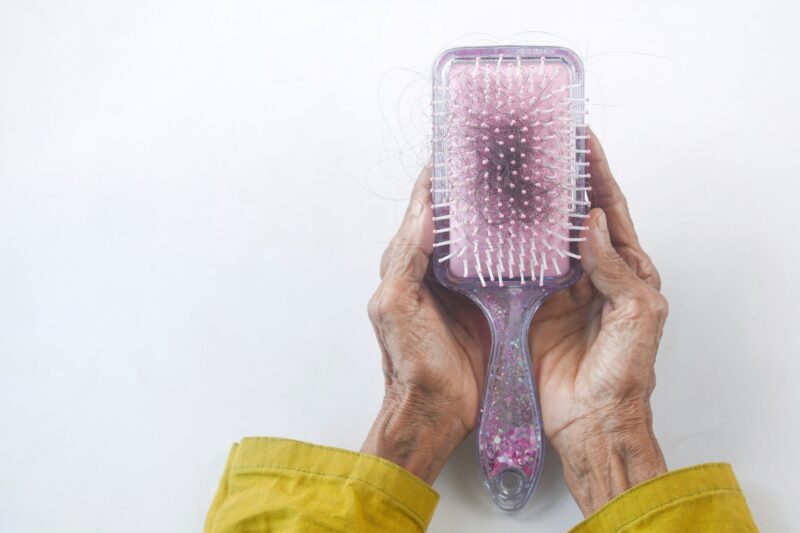Hair loss can be a confusing and often distressing experience. Unfortunately, numerous misconceptions and myths surround this issue, potentially leading to misinformation and hindering effective management. Let’s shed light on some of the most common misconceptions about hair loss and equip you with accurate information:
Myths:
Myth #1: Wearing hats causes baldness
Fact: Hats do not restrict blood flow to the scalp, nor do they trap harmful substances that could lead to hair loss. While tight-fitting hats might cause temporary hair breakage, they don’t cause baldness.
Myth #2: Dandruff causes hair loss
Fact: While dandruff can make the scalp itchy and uncomfortable, it typically doesn’t directly cause hair loss. However, excessive scratching due to severe dandruff can lead to temporary hair loss. Treating the underlying dandruff is crucial to address the irritation and potential hair loss.
Myth #3: Frequent shampooing leads to hair loss
Fact: As long as you use a gentle shampoo suitable for your hair type and cleanse properly without scratching the scalp, frequent shampooing won’t cause hair loss. In fact, it can help remove dirt and product buildup, promoting a healthy scalp environment for hair growth.
Myth #4: Hair loss is only a male concern
Fact: Hair loss affects all genders though it manifests differently. While male pattern baldness is more common, women can experience various types of hair loss due to hormonal changes, medical conditions, and other factors.
Myth #5: Cutting your hair makes it grow faster
Fact: Hair growth occurs at the root, not the ends. Cutting your hair doesn’t affect the rate of growth at the root level. However, regular trims can remove split ends and make hair appear healthier and fuller.
Myth #6: Certain foods can cure hair loss
Fact: While a balanced diet rich in essential nutrients is crucial for overall health, including hair health, no single food can prevent or cure hair loss. However, deficiencies in certain vitamins and minerals can contribute to hair loss, so a balanced diet is important.
Myth #7: Stress doesn’t cause hair loss.
Fact: While stress doesn’t directly cause baldness, it can trigger temporary hair loss called telogen effluvium. Chronic stress can disrupt the hair growth cycle, leading to increased shedding. Managing stress through healthy coping mechanisms is essential for overall well-being and can help prevent stress-related hair loss.
Remember
- If you’re experiencing hair loss, consulting a dermatologist or trichologist is crucial for accurate diagnosis and appropriate treatment options.
- Don’t rely solely on internet myths and misinformation. Seek professional advice and evidence-based information.
- Focus on overall health and well-being. A balanced diet, stress management, and regular checkups contribute to healthy hair growth.
By debunking these Common Misconceptions about Hair Loss and prioritizing accurate information, you can navigate hair loss with confidence and make informed decisions about your hair health.
You can learn more interesting facts here:










